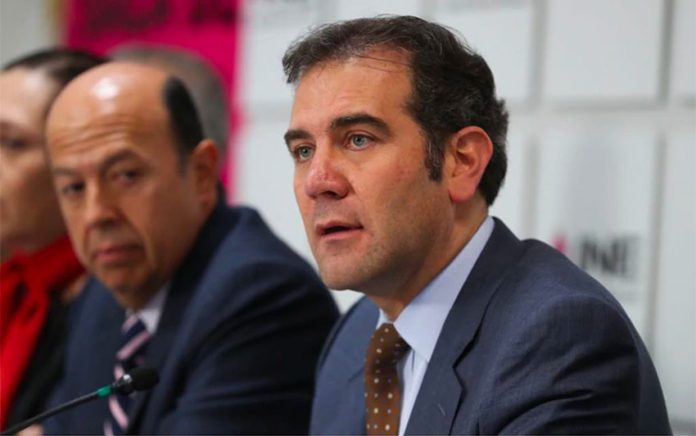The National Electoral Institute (INE) is facing unprecedented hostility, institute President Lorenzo Córdova said on Monday in a thinly veiled criticism of the federal government.
“In its 30 years of history, the institute has never faced such a hostile climate against it as it faces now,” Córdova said at a swearing-in ceremony for new executive director Sergio Bernal.
“These are very complicated times for the National Electoral Institute. … It’s very probable that we have never faced such an adverse and hostile environment against the institute,” he said.
Córdova’s remarks came four days after the lower house of Congress voted in favor of filing a constitutional challenge against the legality of the INE remuneration manual, which stipulates salaries for some electoral institute officials above that earned by President López Obrador.
The government has passed a law stipulating that no public official can make more than the president but INE filed legal action against it and has continued to pay some high-ranking officials – including Córdova – much higher salaries than López Obrador, who earns about 110,000 pesos (US $5,915) per month.
Also on Thursday, federal deputies approved the process to elect four new INE councilors. Government critics and some opposition lawmakers believe that the ruling Morena party, which leads a coalition with a majority in both houses of Congress, will attempt to install government-friendly councilors on the INE board.
In that context, Córdova said that current INE officials have a “historic responsibility” to “look after the institution.”
He called on officials to “close ranks” and ensure that the 2021 mid-term federal elections provide a level playing field for all political parties. INE doesn’t belong to any one person, party or political force, it exists to serve “all of Mexican society,” Córdova said.
The INE president came under fire from some members of the federal government earlier this month after he brought forward a vote to ensure the re-election of executive secretary Edmundo Jacobo Molina for a period of six years. Molina’s current term doesn’t end until April but a majority of INE councilors voted in favor of his re-election on February 7. If the vote were held at the end of his term, the four new councilors would have the opportunity to oppose the re-election.
Public Administration Minister Irma Sandoval was one official who called Córdova’s bringing forward of the vote undemocratic.
Córdova – who has a strained history with López Obrador – is determined to ensure that the INE doesn’t become a partisan institution, a position shared by the majority of current institute councilors, including Ciro Murayama.
Murayama said in January that the INE is at risk of losing its autonomy if Morena is allowed to install government-friendly councilors.
“The rules that allowed Morena to reach power are the same rules that should be operating now that it’s the government,” Murayama said, asserting that Mexico must continue to have an “impartial and autonomous electoral authority.”
Placing partisan officials in the INE goes against reason, he added, because a democratic government needs certainty, credibility and legitimacy at election time.
Source: El Financiero (sp) Infobae (sp)
